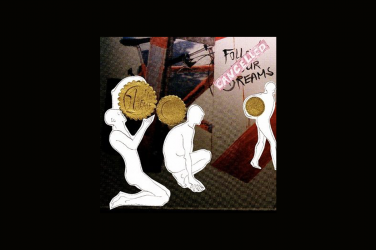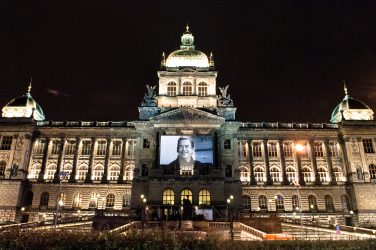Former Polish prime minister Donald Tusk is president-elect of the European Union Council. Our author Ziemowit Jóźwik explores what Tusk will bring to the EU over the next five years.
The election of the longest-serving Polish prime minister Donald Tusk for the President of the European Council has been a major surprise to both European and Polish citizens. Amidst the unanswered questions and speculations, one thing is sure. The appointment of the Polish politician is more eagerly debated in the media than the election of his Belgian predecessor five years ago. The post hasn’t changed. But as a result of internal challenges and the Russian invasion on Ukraine, the language of the EU debate has become more realist.
The best is the worst one
Many commenters have highlighted Tusk’s low competences. Not only is does Polish prime minister lack fluency in two of the three working EU, but he’s also seen as a rather unexperienced EU negotiator. Even if comparisons to Herman van Rompuy (who matured politically in federal, consensus-seeking milieu of Belgian cabinets and thus suited the presidential post better) are rather biased, one should acknowledge that the member states’ leaders aren’t keen to elect heavy-weight politicians for top EU jobs (e.g. Tony Blair’s unsuccessful campaign for EU foreign policy chief in 2009). As long as the European Council President’s main role is to embrace the common “EU interest”, member states leaders might be interested in having someone who’s not going to disturb the Heads of States’ bargaining too effectively.
Germany’s Europe guarantor….
Tusk is seen as being in Germany’s pocket. As a friend of the Kanzlerin he’s rumoured to be involved in conniving with Merkel and Schauble to impose the German economic model on the EU. Such a conspiracy theory may gain some ground in the light of the fact that Tusk’s government had the most pro-German Polish cabinets ever. Since 2007 Poland has proved its loyalty towards the German leadership in the EU. There might be some legal arguments to support this view as well. Because of the decision of Treaty on Stability, Coordiantion and Governance parties, Tusk will also chair Euro Summits – even though Poland is not a member of the EMU and according to art. 12 (1) TSCG, the contracting parties aren’t obliged by the European Council’s decision on its president. On the one hand it might guarantee the institutional cohesion between the two bodies, on the other the president might be used as a voiceless guarantor of the growing systematic Eurozone’s implosion within the EU that has begun with the establishment of the European Stability Mechanism.

And Britain’s ally…
Donald Tusk is also seen as the UK’s ally. He not only underlined the need to listen carefully to the UK’s EU membership concerns in his first speech as President-elect, but also expressed his strong will “to keep Britain in”. Was it just a gesture in order to thank for David Cameron’s eventual support for his candidacy? Well, given that the EU Council president’s political gravitas is based mainly on the gestures, this should mean a lot. Especially if the recent Poland-UK rapprochement over Polish migrants and security is taken into account as well.
No Putin sympathiser
Donald Tusk is also considered as a counter-weight to pro-Russian member states and especially the new EU High Representative for Foreign Affairs and Security Policy, Federica Mogherini, who’s usually portrayed as an unexperienced Putin sympathiser. Especially in the beginning of the Ukrainian uprising and then Russian invasion, Donald Tusk emerged as the leader of the EU’s support for the Ukrainians and was an efficient negotiator of tougher reactions on Russia. Due to the French and German elites’ ambivalence, the UK may become the key President’s ally in the European Council in confronting Moscow’s imperialist agenda, which should be seen as the EU’s crucial external challenge.
Tusk emerged as the leader of the EU’s support for Ukrainians and sanctions on Russia.
Europe’s uniter
Tusk’s election was also spun in the media as the eventual ending of the so-called “two-speed Europe” and the East-West division of the continent. In fact, the trajectory of the EU might be perceived as the gradual process of inclusion of the nationals of new member states for the most important posts. Anyways, respect to “the geographical and demographic diversity” of the EU’s staffing is installed into the Treaties. Nevertheless, the real EU divisions are of a more complex structural nature than EU institutions’ functional role or personnel Donald Tusk’s appointment is a symbol and nothing more in this context.
‘Even Tusk emigrates from Tusk’s Poland’
Finally, Prime Minister Tusk’s era ended in Poland. Longest serving Prime Minister and most successful election winner since 1989 leaves not only his office but the country. It’s a new situation for the Polish political system. During the last seven years, Donald Tusk has become the most influential political figure and redrew the terms of Polish political debate. Besides the amusingly exaggerated reactions, such as Radosław Sikorski’s habemus Praesidentem Europae (a remark to Pope John Paul II’s election in 1978), comparisons to the king of Europe and pretentious references to “prezydent Europy” instead of “przewodniczący (official Treaties’ translation) Rady Europejskiej”, one fact is obvious – the Polish political scene has changed profoundly. Ewa Kopacz’s new cabinet will face a very difficult task to maintain the government continuity – both due the changes in some crucial ministries, extremely problematic external situation and the coming elections. On the other side,mthe opposition will have to get used to the fact that its main opponent might soon become one the country’s most important international partners.

Tusk’s tasks
The Treaties gives less room for interpretation than the inflated media discourse would suggest. Art. 15 (6) TEU states that the role of Donald Tusk is limited to chairing the European Council. This means: he shall ensure the continuity of the work of the European Council by contacting the Commission, General Affairs Council and first and foremost the member states in order “facilitate the cohesion and consensus”. That’s an important role. Moreover, the President isn’t responsible for setting the directions, define the interests or implement the policies but to moderate the discussion of the European Council’s Heads of State. He has no individual capacity to implement common foreign and security policy but can either act jointly or on behalf of the High Commissioner (European External Action Service chief).
The President’s west wing
What usually is missed in the public debate is the composition of the future Donald Tusk’s presidential cabinet. Even though these are still just Twitter gossips, at least two names are interesting. The first one is Piotr Serafin. That’s probably the most trusted EU affairs expert in the Polish governing circles. Despite the fact that he’s not even 40 years old, he has served as the Polish negotiator for the three consecutive EU multiannual financial frameworks and authored the current EU budget as Janusz Lewandowski’s (outgoing budget and financial programming commissioner) collaborator.
The other one is Paweł Kowal – ex-MEP, Chairman of the EU-Ukraine Parliamentary Cooperation Committee and Vice-Minister on foreign affairs. Interestingly he’s a representative of the opposition party. His presence and expertise on Ukraine may benefit the EU over and above his political differences with former prime minister.
Tusk’s nomination is a major success of Polish diplomacy.
25 million #EUtopjobs
Tusk’s nomination is a major success of Polish diplomacy. Rather than settling for the prestigious High Representative for Foreign Affairs and Security, Warsaw won the President of the European Council and a crucial portfolio in Juncker’s Commission. At the same time, these outcomes have shook the internal political status quo. The European Council has got a politician instead of a bureaucrat even if it’s not the President who actually rules the European Council. Thus the political significance may have been overstated by European media, encapsulated by the whole #EUtopjobs hysteria.
Quite symptomatically of this media focus was the fact that the debate on the very few EU top jobs for senior officials, was reported much more eagerly than the 25 million jobs missing on the EU labour market, as the Eurostat revealed during the week preceding the decisive European Council. It is tackling that issue, as well as the Russian invasion on Ukraine, that the newly elected President of the European Council Donald Tusk will try to facilitate the cohesion and consensus on.
Cover Image: Kancelaria Premiera, CC BY-NC-ND 2.0 (flickr)









